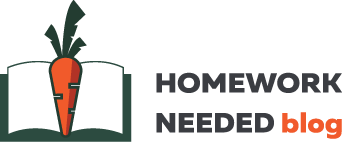
Before we move to an exhaustive definition of human soft skills and its interpretation, let’s come up with a few instantaneous associations.
In Part 1 of this research essay I offered you the comparison of our hard and soft skills with computer hardware and software. But defining soft skills separately, I’d say that I can immediately correlate them with the features of one’s personal character and the ways one reveals it in real-life situations.
To me, “soft” should be referred to something changeable, something that can be influenced by outer circumstances or, maybe, just inner hormonal activity. However, that’s still a very general and too unobtrusive interpretation of soft skills.
Let’s consider it in more detail.
Soft Skills Features and Examples
In the previous post, I mentioned the U.S. Army’s doctrine “System Engineering of Training” of 1968 that defined them as the skills involving relationships between people as well as various paperwork, excluding interaction with any technology.
But nowadays the term “soft skills” covers much more abilities than 50 years ago. Scientists have even coined a few synonyms for it: social skills, transferrable skills, interpersonal skills.
Eastern Kentucky University, the US, even compiled a list of 10 most important soft skills. Although they are initially attributed to business executives only, I think you’ll find all 10 of them very helpful and practicable for people of any profession. However, it’s another question whether a certain specialist must develop some of them if they lack them and don’t need them for work. But we’ll discuss that below.
So, the top-ten soft skills are oral and written communication, manners (that is courtesy), morality (or integrity), flexibility (that is adaptability to various circumstances), optimism, professionalism (mostly in appearance and behavior), ability to work in a team, responsibility and reliability, work ethic and self-motivation, plus the very interpersonal skills, including sense of humor, empathy, friendliness, etc.
Now, let’s think about the common specifics of all those skills and try to come up with their general characteristics.
- Unteachable but developable
You are right if you think that the “quality” of your soft skills must largely depend upon the type of person you are. That is upon your personal character, as I’ve stated above. So, I understand that if you are an introvert, communication with others is something you’ll try to avoid as much as possible.
But the not very good news is that no one will ever teach you how you should approach and interact with other representatives of your species. If you’ve already noticed, schools and universities don’t offer special courses in building relationships with the guys you just can’t stand. Psychological and ethic theories also don’t help. Neither do all those meetings, trainings, or conferences.
Even their hosts, when they are really honest and knowledgeable people, claim that only your personal life experience, your successes and failures in communication, can help you work out different but equally healthy approaches to absolutely different people.
You should just pay attention to the lessons your life teaches you and decide on which personal qualities you need to optimize, and which of them you’d better locked in the darkest and coldest corner of your soul.
- Almost unmeasurable
Of course, you can say which friend of yours is more optimistic or has a better sense of humor. Because you can compare them to each other or to other people you know. Comparative method is a great tool for analyzing different phenomena or qualities, so take this into account if you’re going to write a thesis.
Yet let’s get back to the topic. You can compare soft skills of different people, but you can’t measure them. Emotional Quotient is probably the only one index that can provide some numbers to researchers studying soft skills.
The most trustworthy measure of your soft skills is your achievements in the sphere or in a single situation where you use them. If you get what you want as a result, without doing any harm to other people, then you can be sure your soft skills are really well-developed.
- Changeable and flexible
Depending upon the situation that requires you to apply your soft skills, and you may face such a situation every single hour of your day, you actually regulate the degree of exercising them. Either consciously or subconsciously.
It means that certain circumstances can have an impact on your soft skills. These circumstances make you adapt them to the conditions and people you are facing so that you can either gain what you want or at least avoid any probable and highly undesirable consequences of the interaction you’re involved in.
For example, you will exercise your friendliness in three different ways when you speak to your friend, to your professor, and to a barista at your favorite cafe. The sharpness of your decision-making skill will also vary: it will be lower when you’re choosing a shirt to wear for an interview, and it definitely will be higher when some problems occur suddenly at the final stage of your scientific project.
However, the ability to regulate the application of soft skills in different circumstances successfully and painlessly comes with experience. The better you analyze it and learn from it, the higher your chance to develop the necessary soft skills is.
By the way, you can learn more about soft skills here.
So, What’s the Problem?
Well, ideally, your hard skills, that is your professional knowledges and abilities, should be combined harmoniously with the whole set of soft skills, listed by Easter Kentucky University. But no one is ideal in our world and even the smartest guys sometimes use college homework help resources, for example (I hope I haven’t just hurt your feelings, but you can only put up with this truth.)
And here comes a thorny dilemma. What is more valuable: being a superb specialist who doesn’t like communicating with people though, or playing a glad-hander who yet can’t boast about a profound knowledge of a specialty he or she has engaged into?
It’s true that some employers or start-uppers pay too much attention to soft skills of their potential team members. They may check whether you list these skills in your resume or exercise them during the probation period. And sometimes they may get so carried away by testing your creativity at team meetings that they really overlook your professional abilities when you’re working on a particular project.
If you feel that I’m just rubbing salt into your wounds now, run away from that company or start-up.
The thing is that if one possesses well-developed hard skills, say, in programming, one’s certain soft skills also appear equally well-developed.
An expert programmer is creative, decisive, responsible, and reliable. Just like an expert marketing manager, doctor, or engineer. Because knowledgeable experts realize the importance of their job and the cost of their mistakes.
Yes, they may wear creased shirts or have really sharp tongues. But should that matter when a team lead or a hospital director knows for sure that the job they are entrusted with will be done flawlessly?
Conclusion
We should develop both hard and soft skills with equal determination. We can’t consider ourselves experts without hard skills, but we can’t fit in the modern society without soft skills. Why so? I recommend you reading a few books on modern philosophy and psychology if you really want to know the answer. But I must warn you that you might not like it.
In my humble opinion, to solve the aforementioned dilemma, it’s important to understand that each profession requires a particular set of soft skills, not all 10 or 100 of them, depending upon the source you’re checking.
A surgeon doesn’t need to know how to code in JavaScript, while a programmer doesn’t need to know how to suture a wound. And a student doesn’t always feel inspired to do homework and needs some help with an assignment. Of course, they can learn that if they want to. But their employers and professors require only those skills that will guarantee that the job can be done perfectly and timely.
I’d rather stick to the same principle when it comes to such soft skills as communication or personability. A professional surgeon or a professional programmer can’t but be moral, optimistic, and enthusiastic. Otherwise, they won’t be professionals. So, who cares that they don’t like to speak to their colleagues during a coffee break?

